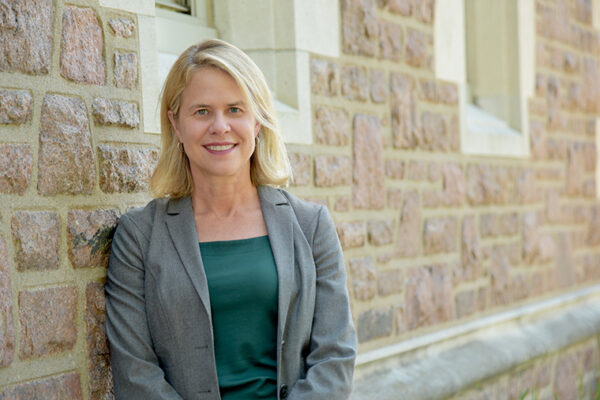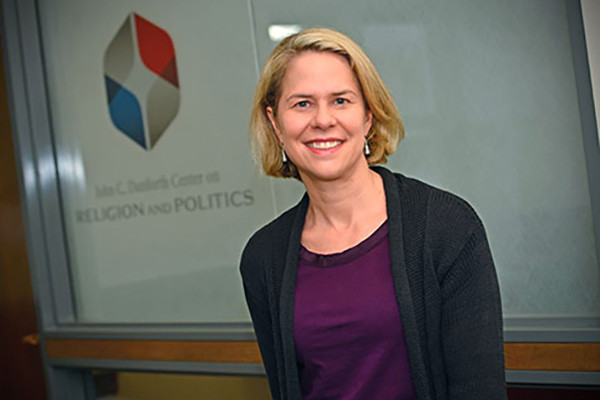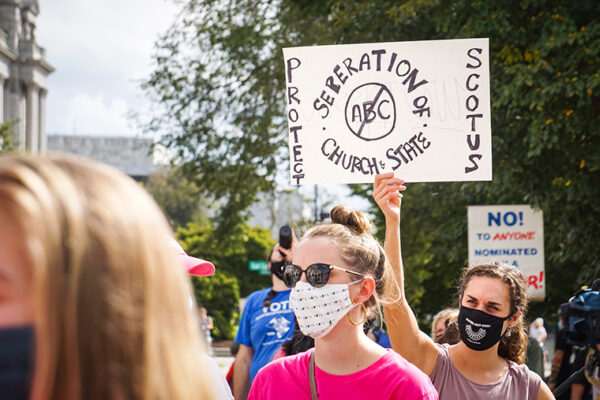Donald Trump’s surprising success with Mormon, Catholic and evangelical Christian voters can best be explained by the deep distrust that these groups have for Hillary Rodham Clinton, suggests R. Marie Griffith, the John C. Danforth Distinguished Professor in the Humanities and director of the Danforth Center on Religion and Politics at Washington University in St. Louis.
“Many high-profile religious leaders came out strongly against Donald Trump in the weeks and months before the election, but their followers seemed to disregard his moral failings once they got into the voting booth,” Griffith said. “They ended up voting for Trump not for strictly religious reasons, not because of some heart-felt religious affinity for him, but more likely because they had such a strong dislike for and animus toward Hillary Rodham Clinton and Barack Obama.”
Griffith, the author of several books on religion and politics, points out that the notion of Clinton as evil goes back more than two decades in some Christian circles. As Griffith documents in her 2000 book, “God’s Daughters: Evangelical Women and the Power of Submission,” suspicions of Clinton as possessed by demonic spirits of witchcraft, the occult and lesbianism have been cropping up since the 1990s.
While these suspicions are now seldom articulated in public settings, they may help explain why high percentages of evangelical men and women voted for Trump despite impassioned pleas to do otherwise from an array of influential religious thought leaders.
While high-profile religious commentators, such as Russell Moore of the Southern Baptist Convention, newspaper columnist Michael Gerson and evangelical bloggers Beth Moore and Jen Hatmaker, were quick to point out the moral flaws of candidate Trump, most avoided offending their audiences by explicitly urging a vote for Clinton, Griffith said.
In retrospect, said Griffith, it may be that pundits and pollsters underestimated the deeply negative feelings that many religious voters apparently still harbor for Clinton. The holdover from earlier depictions of her as wicked and anti-Christian may have meshed with more recent charges of criminality, creating an image too negative for those voters to overcome.
Griffith’s next book, scheduled for fall 2017, is titled “Moral Combat: How Sex Divided American Christians and Fractured American Politics.”
Editor’s note: Griffith is available for interviews and may be reached via email at mgriffith@wustl.edu or by phone at 314-935-9345.
Read more from our experts on Election 2016.


